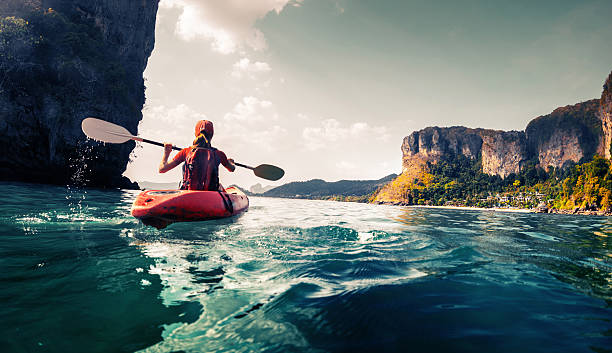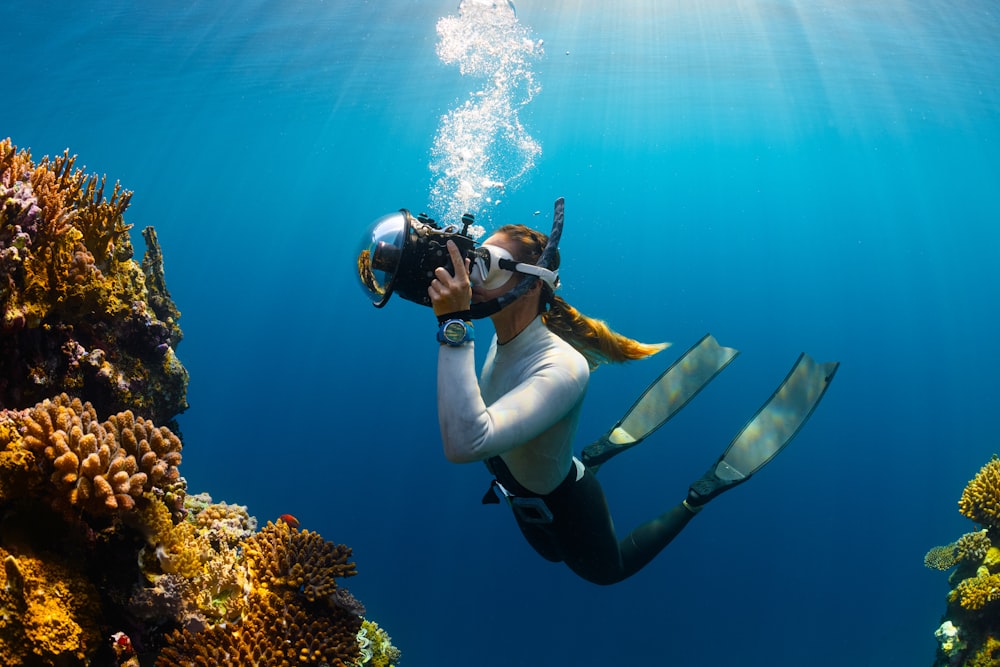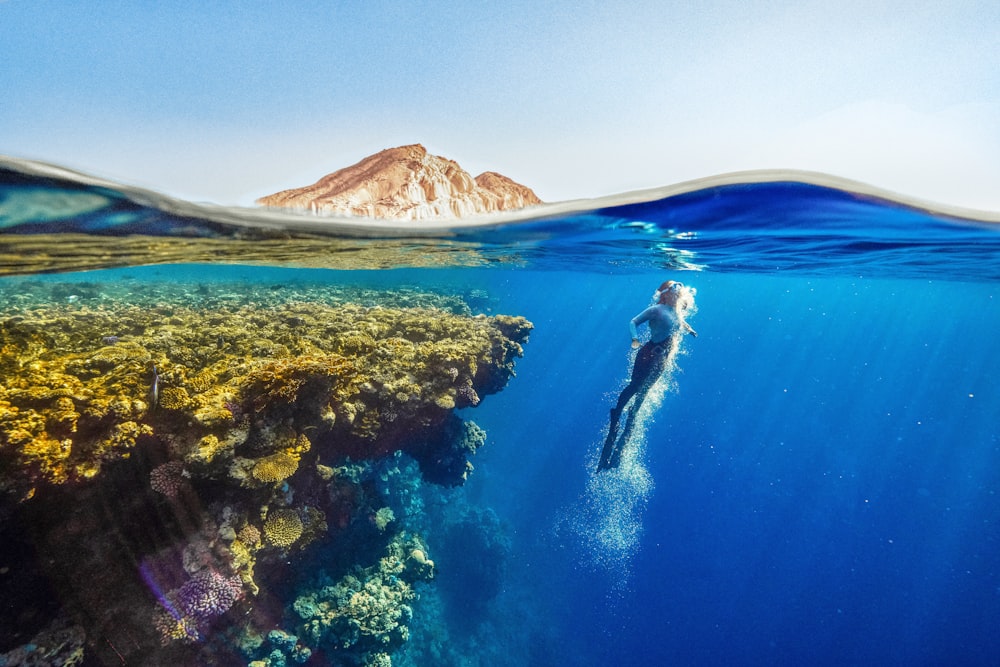When it comes to travel, the allure of water activities is undeniable. From the soothing lull of ocean waves to the adrenaline rush of water sports, aquatic adventures have a universal appeal. However, as responsible travelers, it’s essential to approach water activities with thoughtfulness and consideration for both the environment and local communities. In this blog post, we’ll delve into the exciting world of water activities and explore how you can enjoy them with a mindful and sustainable approach.
Invest in swim lessons
In the pursuit of enjoying water activities responsibly, investing in swim lessons emerges as an invaluable step for travelers. Whether you’re a novice or a seasoned swimmer, refining your aquatic skills not only enhances personal safety but also contributes to a more enjoyable and confident experience in the water. There are opportunities for travelers to engage in a swim lesson, often provided by certified instructors. These lessons not only cover essential swimming techniques but also educate participants about water safety, rescue skills, and the importance of respecting marine environments.
Acquiring proficiency in swimming empowers travelers to fully immerse themselves in water activities, fostering a deeper connection with the aquatic world. Moreover, it adds an extra layer of safety, enabling individuals to navigate water bodies with confidence and composure. Embracing swim lessons reflects a proactive commitment to responsible and enjoyable water exploration, ensuring that your aquatic adventures are not only thrilling but also conducted with a heightened awareness of personal and environmental well-being.
Choose Responsible Operators
When embarking on water adventures, the initial and crucial step towards a considerate experience lies in selecting responsible operators. Opt for tour companies that go beyond merely providing thrilling experiences by prioritizing sustainability. Seek out businesses committed to environmental stewardship, adhering to stringent guidelines that minimize their ecological footprint. Look for those that employ eco-friendly practices, such as minimizing waste, using renewable energy sources, and promoting responsible tourism.
A truly responsible operator actively engages in local conservation efforts, contributing to the protection of marine and aquatic ecosystems. These operators not only ensure the safety and enjoyment of their patrons but also play a pivotal role in preserving the intrinsic beauty of natural surroundings. By choosing such operators, travelers become integral participants in the broader movement toward sustainable and eco-conscious tourism, fostering a harmonious relationship between adventure seekers and the delicate ecosystems they explore.
Respect Marine Life
Engaging in the enchanting realms of snorkeling and diving unveils the captivating beauty of marine life, an experience unlike any other. Yet, this privilege comes with a responsibility to approach such encounters with profound respect and heightened awareness. A cardinal rule is to maintain a safe and respectful distance from marine wildlife, appreciating their natural behaviors without causing undue disturbance. Equally important is the imperative to refrain from touching delicate coral reefs, as these intricate structures are essential for marine biodiversity.
By adhering to responsible diving practices, enthusiasts contribute significantly to the preservation of these delicate ecosystems. Such conscientious actions ensure that these underwater wonders remain unharmed and flourish for the appreciation of present and future generations alike. The commitment to respecting marine life not only enhances the quality of the diving experience but also establishes a sustainable coexistence between the human observer and the vibrant, diverse life beneath the waves.
Embrace Sustainable Water Sports:
Thrill-seekers, drawn to the excitement of water sports like kayaking, paddleboarding, and windsurfing, can magnify their enjoyment by adopting a sustainable approach. Choose equipment crafted from eco-friendly materials, showcasing a commitment to minimizing environmental impact. Being mindful of your surroundings during these activities is key—avoiding disturbances to aquatic life and respecting natural habitats contribute to the preservation of ecosystems.
Taking it a step further, consider actively participating in local initiatives aimed at environmental conservation. Engaging in beach cleanups or supporting projects focused on the protection of water bodies exemplifies a commitment to the well-being of the destinations you explore. By aligning water sports adventures with sustainability, enthusiasts become ambassadors for responsible tourism, fostering a harmonious coexistence between the exhilaration of the activities and the delicate ecosystems that serve as their backdrop. This conscientious approach ensures that the joy of water sports remains inextricably linked to the preservation of our planet’s aquatic treasures.
Educate Yourself on Local Customs:
Before immersing yourself in water activities in a new destination, it’s paramount to dedicate time to understanding and respecting local customs and regulations. Each locale may have unique guidelines in place, designed not only to ensure the safety of participants but also to protect the integrity of their waters and marine ecosystems.
By familiarizing yourself with these specific rules, you become an active participant in the preservation of the destination’s natural beauty. Moreover, adhering to local customs demonstrates a profound respect for the community and its heritage, fostering positive relationships with the people who call these places home. This cultural awareness not only enriches your travel experience but also contributes to the sustainable and responsible enjoyment of water activities. In essence, educating yourself on local customs becomes a pivotal step in ensuring that your aquatic adventures leave a positive and lasting impact on both the environment and the communities you encounter.
Leave No Trace:
The principle of “Leave No Trace” extends its significance beyond the realms of hiking and camping to encompass water activities as well. Adhering to this fundamental ethos involves a commitment to packing out everything you bring in, ensuring the proper disposal of waste, and meticulously avoiding any signs of your presence. This seemingly straightforward yet powerful practice is instrumental in preserving the pristine charm of water destinations for years to come.
It safeguards the natural beauty of aquatic environments, preventing the degradation of ecosystems caused by human interference. By embodying the “Leave No Trace” philosophy in water activities, you contribute to the longevity of the destination’s allure, allowing others to revel in the same unspoiled landscapes. This shared responsibility among travelers fosters a collective commitment to sustainability, ensuring that the intrinsic beauty of water destinations endures, undiminished by the impact of human interaction.
In conclusion, water activities offer an incredible array of experiences for travelers. By approaching them with a thoughtful and sustainable mindset, you can not only enjoy the beauty of the aquatic world but also contribute to its preservation. Traveling responsibly ensures that these natural wonders remain accessible to future generations, creating a positive and lasting impact on the destinations we explore. So, dive in, paddle out, and make a splash – all while leaving only ripples behind.
Published by HOLR Magazine.




